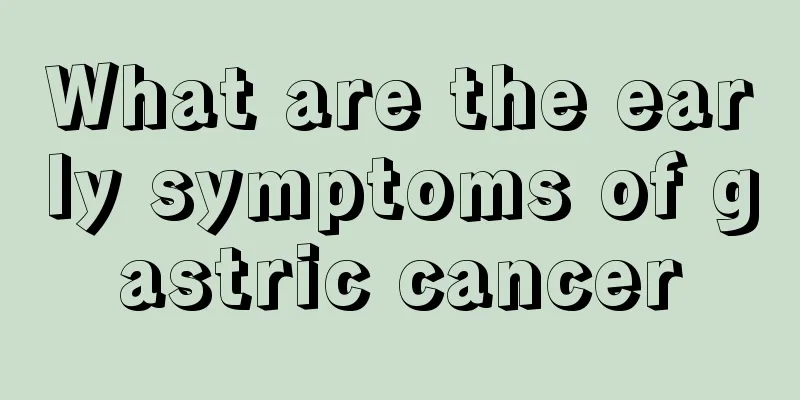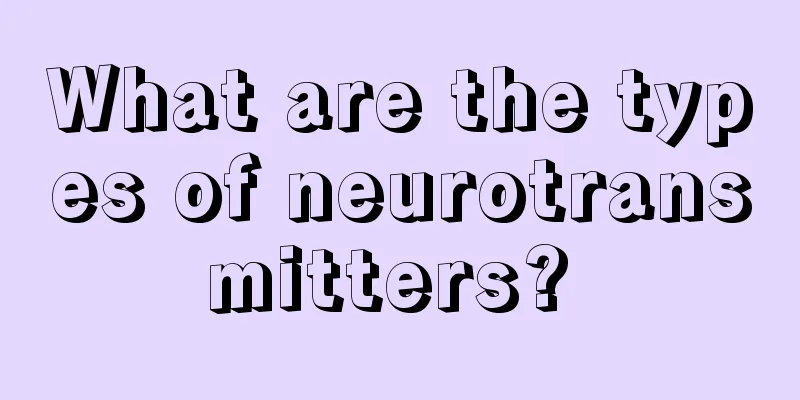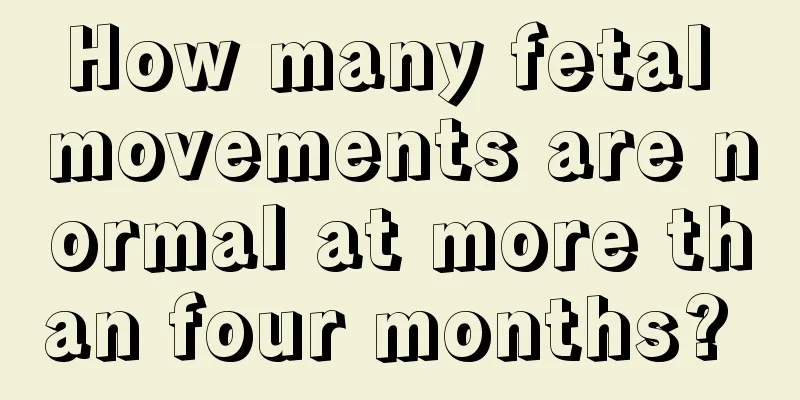What are the early symptoms of gastric cancer

|
Gastric cancer is one of the common malignant tumors of the digestive system. Its early symptoms are often hidden and easy to be ignored. However, early detection and treatment of gastric cancer are crucial to improving survival rate and quality of life. Symptoms include abdominal pain, gastrointestinal bleeding, bloating and belching, loss of appetite, nausea, etc. If you have any discomfort, it is recommended to seek medical attention in time and take appropriate measures under the guidance of a doctor. The details are as follows: 1. Abdominal pain: Chronic upper abdominal pain with no clear relationship to diet; or ulcer disease with regular abdominal pain, which suddenly becomes irregular and frequent; the abdominal pain may be mild or severe, and sometimes it can be relieved by itself. For abdominal pain symptoms, the cause must be identified first. If it is caused by gastric cancer and is in the early stage, surgical resection is the preferred treatment method. After surgery, auxiliary treatments such as radiotherapy and chemotherapy can be used according to the situation. 2. Gastrointestinal bleeding: manifested as black stool, bloody stool or hematemesis. Especially in the absence of a history of ulcers and not taking related medications, the above symptoms should be highly vigilant. For gastrointestinal bleeding, immediate hemostatic treatment is required and the cause of bleeding should be identified. If it is confirmed to be caused by gastric cancer, surgery should be performed promptly to remove the lesion, supplemented with necessary supportive treatment and follow-up treatment. 3. Abdominal distension and belching: Since cancer cells affect the normal peristalsis and function of the stomach, symptoms such as abdominal distension and belching may occur. For abdominal distension and belching, drugs that promote gastrointestinal peristalsis can be used for symptomatic treatment. At the same time, actively treating the primary lesion of gastric cancer is the key. 4. Loss of appetite: Some people restrict their food intake due to increased abdominal distension and pain after eating, which leads to loss of appetite. Improving appetite and nutritional status are important aspects of treatment. Treatment can be carried out by adjusting the dietary structure, increasing nutritional intake, and using digestive drugs. At the same time, actively treat the primary lesion of gastric cancer to alleviate symptoms. 5. Nausea: Early gastric cancer may cause symptoms such as nausea and vomiting, especially after eating. Antiemetic drugs can be used to treat nausea and vomiting. At the same time, actively finding and treating the primary lesion that causes nausea is the key. The early symptoms of gastric cancer are varied and relatively hidden, and are easily overlooked. Once gastric cancer is diagnosed in the early stage, effective treatments such as surgery should be actively adopted to improve survival rate and quality of life. At the same time, attention should also be paid to maintaining a good living habit and mentality to promote recovery from the disease. |
<<: How many days after breast cancer surgery will I be discharged from the hospital
>>: What are the symptoms of bone cancer?
Recommend
What are the nursing measures for esophageal cancer
The care of patients with esophageal cancer is ve...
What is the stage of swollen feet due to lung cancer?
What is the stage of swollen feet due to lung can...
What are the symptoms of cervical cancer? What are the clinical manifestations of cervical cancer in women?
What are the clinical symptoms of cervical cancer...
Biliary duct cancer will recur a few years after resection
In today's society, with the rapid developmen...
How long can you live with bladder cancer?
Bladder cancer is one of the most common tumors i...
What are the main early symptoms of cardiac cancer
Cardiac cancer is very common in life, and it mai...
Things to note when breast cancer patients are receiving radiotherapy
Mild side effects may occur during radiotherapy f...
How to choose medication after nephrectomy
After undergoing surgery, radiotherapy, and chemo...
Top 10 Muscle-Building Foods
More and more people have realized the importance...
What dietary precautions should be taken for severe fatty liver?
Fatty liver disease cannot be treated hastily and...
What are the hazards of aromatherapy lamps
I believe that many female friends have used arom...
How to treat advanced lung cancer? The best treatment for advanced lung cancer
Lung cancer is the most common primary lung malig...
What are the folk remedies for treating flat warts?
Flat warts are a common skin disease. The occurre...
The difference between grain wine and blended wine
Everyone likes to drink, but don't buy cheape...
The difference between snails and conchs
Field snails and conchs are both very common ingr...









